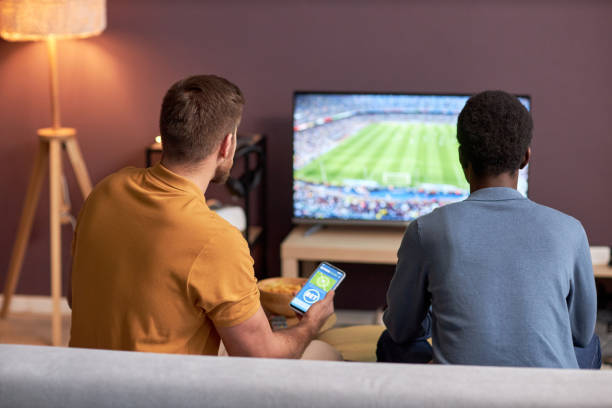I used to think betting was a private thing—just me, the odds, and a screen. But over time, I found that social sports betting—betting alongside friends, with structure and limits—transformed the way I engage with sports. It became a shared experience, not a stressor.
This is my story of how I shifted from solo wagers and late-night chases to finding balance, fun, and connection through betting.
Why I Felt Betting Was Becoming a Problem
I’m Sam, 31, a Premier League fan based in Dublin. For years, I enjoyed placing the odd bet. But something changed during the last World Cup. I realised I was betting more frequently, on teams I didn’t even follow, and doing it alone—sometimes just for the thrill of the odds.
I began asking:
- Am I actually enjoying the sport—or just chasing wins?
- Why do I feel more anxious after betting, not better?
- Would I place this bet if I were with my friends?
These questions stuck with me. They made me re-evaluate why I bet at all.
What Made Betting Feel Social Again?
At first, I tried taking a break. But what really helped was changing the context—not quitting altogether.
Here’s what I started doing:
- Watching matches with friends again—especially big tournaments
- Setting up small group bets on just one game per day
- Talking through bets with mates instead of rushing solo picks
It wasn’t about betting less—it was about betting smarter and with people I trust.
The Rules We Made (That Actually Helped)
As a group, we put a few ground rules in place:
| Rule | Why It Helped |
| Only one bet per matchday | Reduced compulsive betting |
| Max stake of €10 ($11) per game | Kept things affordable and fun |
| No bets on teams we didn’t follow | Kept us engaged and informed |
| Group check-in at half-time/full-time | Turned it into a social event |
These weren’t strict “don’ts”—they were just shared boundaries that made betting feel more like a hobby again.
Was It Still Fun with Boundaries?
Honestly, it was more fun. I looked forward to watching games because of the banter, not just the bet. We’d pick sides, challenge each other on stats, and laugh about near misses.
Here’s what changed:
- I no longer refreshed odds during dinner or on my phone in bed
- My anxiety around losing money vanished
- Wins felt like bonuses—not necessities
The best part? I wasn’t hiding it anymore. Betting felt open, light, and genuinely social.
Did I Still Make Mistakes?
Of course. I still got carried away on Super Bowl Sunday and placed three bets in a row. But having friends there made it easier to pause.
One mate asked, “Would you do that if we weren’t watching?” That stuck with me.
I realised how valuable it was to have people around me who cared—not just about the game, but about how I was engaging with it.
What I’d Recommend to Anyone Struggling
If betting feels isolating or overwhelming, try these:
- Watch with friends, not just your phone
- Stick to bets you’d proudly share out loud
- Set casual group limits—it makes everyone more mindful
- Use sportsbook tools to cap spending or take short time-outs
- Don’t chase—review instead. Here’s how to handle losses
Final Thoughts: Hobby First, Betting Second
Betting doesn’t have to be a problem. But it does require awareness. For me, making it social brought back the joy of the sport—and helped me set healthier habits.
It’s still a thrill when a bet lands. But the real win? Laughing with friends, sharing moments, and knowing that betting adds to the experience—not takes away from it.
Key Takeaways
- Social betting can reduce compulsive behaviour
- Group rules add structure and support
- Fun grows when pressure disappears
- It’s okay to slip—as long as you reflect and adjust










